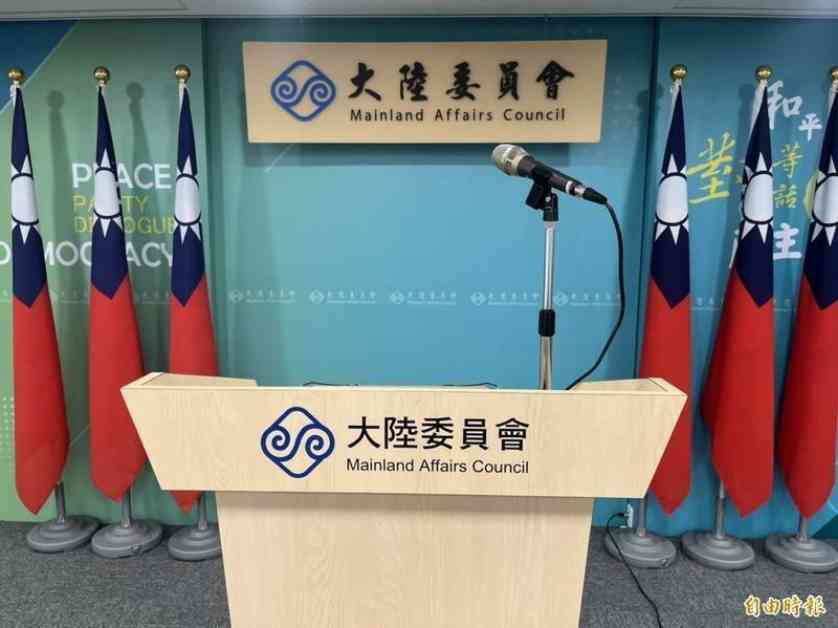China’s Espionage Threat and Talent Poaching: Taiwan’s Democratic Defenses
The Mainland Affairs Council (MAC) recently convened a consultation committee meeting to discuss the “Post-Third Plenum Trends in China’s Political and Economic Landscape.” The MAC’s consultation committee members issued a warning, emphasizing the escalating tensions in China’s economic and trade relations with Western countries. They highlighted concerns over China’s increased efforts to lure talent from Taiwan and steal core technologies. It was stressed that Taiwan must be vigilant to prevent becoming a gateway for the outflow of democratic camp’s technology and talent.
China’s Economic Challenges and Technological Innovation
Following the 20th Third Plenum, the Chinese Communist Party (CCP) is expected to advance “Chinese-style modernization” and develop “new quality productivity.” However, China’s economic transformation faces challenges such as an aging population, regional development disparities, escalating risks in real estate and local government debts, and mounting environmental pressures.
In terms of technological innovation and industrial upgrading, China still struggles with shortages of research talent and constraints on core technologies. The added value of strategic emerging industries in the country’s Gross Domestic Product (GDP) rose from 8.0% in 2016 to 13.0% in 2022, indicating a significant challenge in achieving the 17% target set for 2025 under the “Fourteenth Five-Year Plan.” Some committee members speculated that the Third Plenum did not propose specific economic stimulus measures, possibly due to uncertainties related to the U.S. election, retaining flexibility in policy tools.
Challenges in China’s Economic Development
Key to China’s economic development lies in market liberalization. However, the CCP prioritizes national security over economic growth and leans towards a leftist ideology. In recent years, the CCP established the Central Science and Technology Commission, with the party centralizing leadership in scientific and technological work. This has raised concerns about non-experts leading experts, potentially hindering advancements in technology.
Some committee members pointed out that while China is focusing on developing “new quality productivity” and promoting technological self-reliance, excessive subsidies have led to severe overcapacity issues, particularly in the technology sector. To achieve groundbreaking technological inventions, China needs a free market environment and access to international markets for technology and funding. However, recent statistics from the State Administration of Foreign Exchange show a net outflow of $14.8 billion in foreign direct investment in the second quarter of this year. This marks the second negative quarterly value since 1998, indicating a continued decline in foreign investment, which could hamper China’s technological innovation and transformation.
Concerns Over China’s Employment and Economic Stability
Committee members expressed concerns that China’s unemployment situation may be more severe than the data released by the National Bureau of Statistics suggests. The employment of rural migrant workers is not accurately reflected in urban employment statistics, leading to reduced income for the population. Instances of salary cuts, wage disputes, and wage arrears are on the rise, affecting consumer confidence and weakening consumption growth momentum. This, in turn, amplifies social dissatisfaction and undermines China’s social stability.
Furthermore, China’s past rapid growth relied heavily on excessive and redundant investments in infrastructure. However, ineffective and excessive infrastructure projects have worsened local government finances, failing to deliver substantial benefits and straining fiscal resources. The CCP’s directive for state-owned enterprises to use loans from state-owned banks to purchase unsold housing from developers is likely to increase non-performing loans, leading to record levels of bad debts, declining net interest margins, and deteriorating profitability in the banking sector. Such practices could escalate systemic financial risks.
In conclusion, with the United States and the European Union taking a tougher stance against China’s violations of WTO rules through government subsidies and market interference, Taiwan must be prepared for potential economic and trade pressures from China. As tensions between China and Western countries intensify, Taiwan must safeguard against talent poaching and technology theft, preventing itself from becoming a vulnerability for the outflow of democratic camp’s technology and talent. It is crucial for Taiwan to stay vigilant and proactive in protecting its democratic values and technological advancements in the face of China’s increasing espionage threats and talent poaching strategies.












